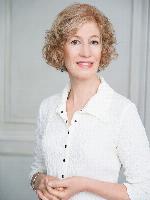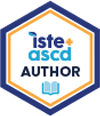

Event Information
1. How embracing ALL of the science of reading can get us past the old debates: Following the science related to reading doesn't mean just adding more phonics. It also means embracing whole-class read-alouds, discussion, and deep dives into content that can enable students to achieve at higher levels and introduce them to the pleasures of reading and learning. (5 minutes)
2. Why the reading crisis is actually a learning crisis: We all know students need to learn to read in order to acquire knowledge. But it's less widely recognized that the relationship goes in the other direction too: acquiring knowledge enables you to understand what you read. Our failure to recognize that aspect of the relationship helps explain low national test scores not only in reading but in subjects like history and civics. (5 minutes)
4. Connecting cognitive science and literacy instruction: Research has identified a number of practices that boost learning, but teachers rarely learn about them. When we view typical approaches to literacy instruction through the lens of cognitive science, it becomes clear that we've been making reading and writing much harder than they need to be. (10 minutes)
5. Cognitive science and equity: Science-informed teaching benefits all students, but those from less educated families and under-resourced communities stand to gain the most. It isn't the only thing we need to do to achieve equity, but we won't create a truly equitable system without it. (10 minutes)
6. Beyond the curriculum wars: Science tells us that students learn best when the curriculum is focused on specific content rather than abstract skills, but how can we agree on the content? Especially for historical topics, an approach that separates "story" from "judgment" holds great promise for enabling schools to cover potentially controversial topics without raising alarm bells. (10 minutes)
7. What the science of learning looks like in the classroom: It's a tall order for teachers to master the principles of the science of learning--including the subset of principles relating to the science of literacy--and figure out how to implement them in the classroom. But as long as they have a content-rich curriculum, they can get all the benefits of science informed teaching by embedding a method of explicit writing instruction in the content they're teaching. A case study of a high-poverty district will illuminate the blossoming of student potential that can occur when that happens. (10 minutes)
Participants will have the opportunity to engage in peer-to-peer interaction as well as to ask questions of and share observations with the presenter.
Greg Ashman, A Little Guide for Teachers: Cognitive Load Theory (Corwin UK 2023)
Hugh Catts, Rethinking How to Promote Reading Comprehension, https://www.aft.org/ae/winter2021-2022/catts
Judith Hochman and Natalie Wexler, The Writing Revolution 2.0: A Guide to Advancing Thinking Through Writing in All Subjects and Grades (Jossey-Bass 2024)
Barak Rosenshine, Principles of Instruction: Research-Based Strategies That All Teachers Should Know, https://www.aft.org/sites/default/files/Rosenshine.pdf


| Related exhibitors: | Amplify Education |